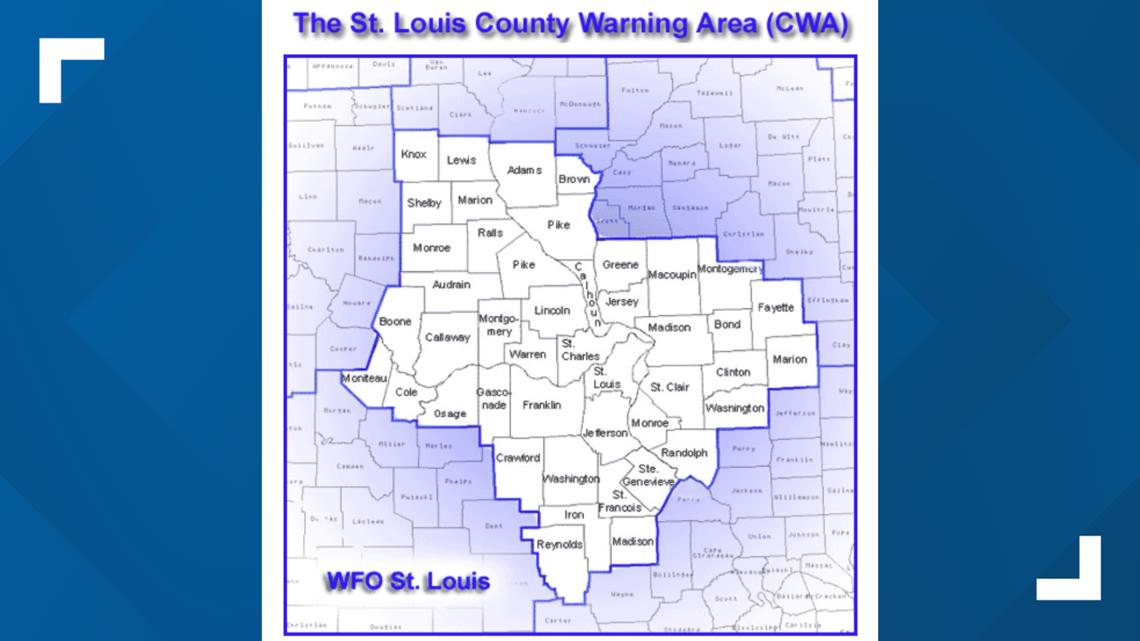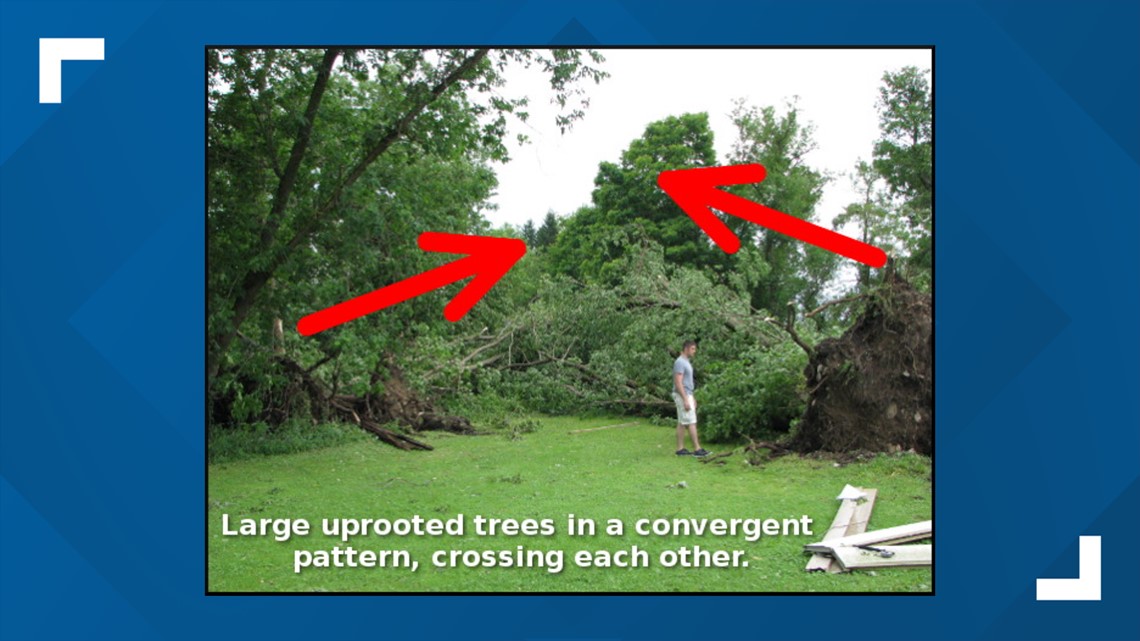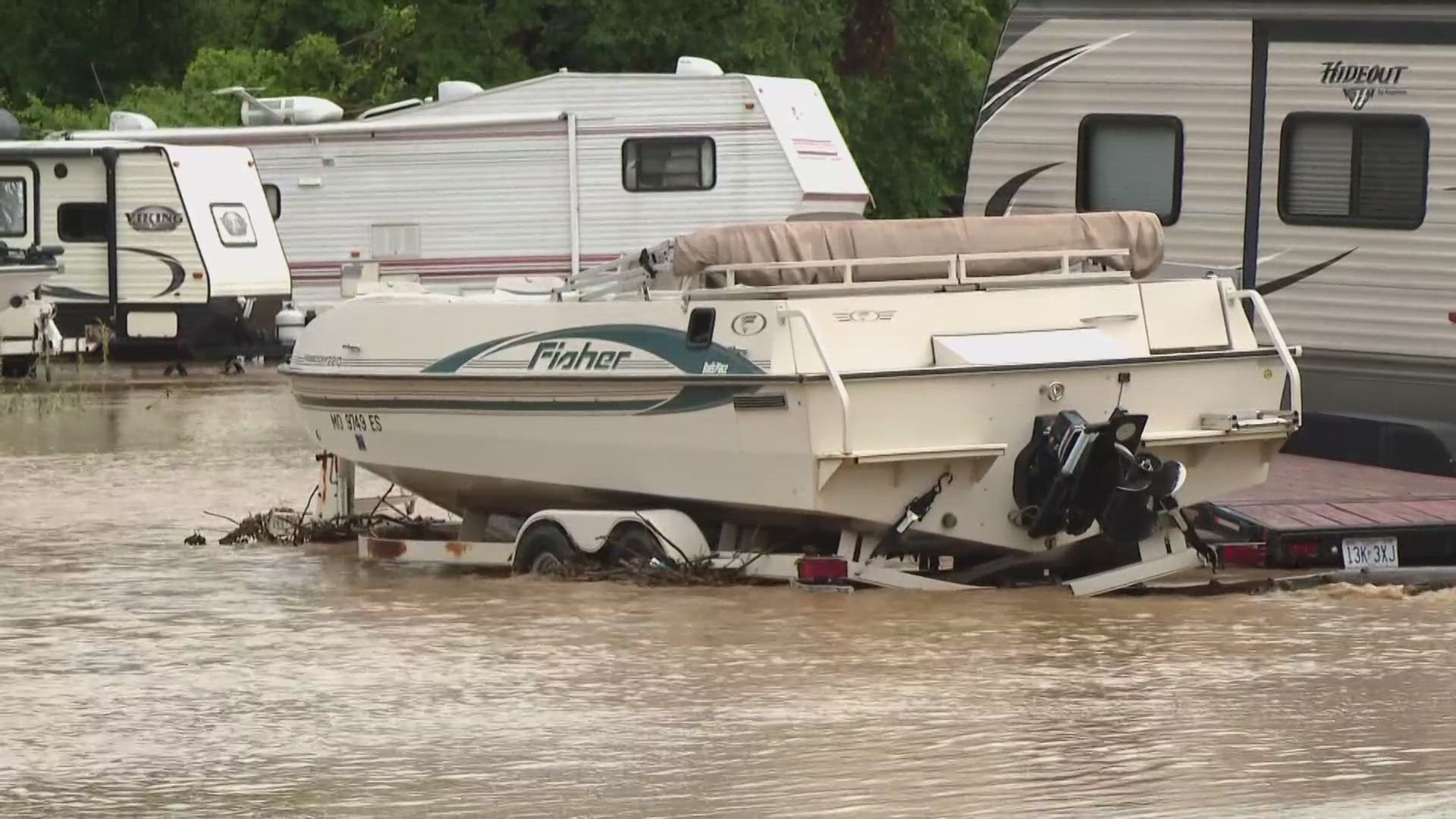ST. LOUIS — The National Weather Service survey crews were deployed Wednesday morning to assess the damage caused by a storm system that drenched the entire St. Louis region and Metro East on Tuesday.
Numerous counties in the 5 On Your Side coverage area were hunkered down after multiple tornado warnings were issued by the NWS at around noon on Tuesday. The survey crews traveled to areas where damage was reported to confirm whether suspected tornadoes touched down.
How many St. Louis region tornado touchdowns have been confirmed?
The NWS confirmed two tornado touchdowns in the St. Louis region from Tuesday's storms, including:
- A tornado that went through Byrnesville with a max wind speed of 80 mph. The tornado's track went through a residential area of the city and ended over Highway 30.
- A tornado that touched down west of Treloar near Hoelscher Road with a max wind speed of 60 mph.
Editor's note: "St. Louis region," as used in this article, refers to the St. Louis County Warning Area (CWA), the region that the National Weather Service's St. Louis office covers, rather than the "St. Louis metro area." Tornadoes rarely touch down in what is considered the St. Louis metro area. For example, of the 1212 confirmed tornadoes in the St. Louis region from 1805 to 2023, only 54 have touched down in St. Louis County.


How do meteorologists confirm tornado touchdowns?
Radars and electronics can only tell NWS meteorologists so much. To figure out whether a tornado happened, the service has to head out into the field. Less than 24 hours after the storms, the agency sent out multiple survey teams to assess damage and figure out whether a legitimate tornado touchdown occurred.
"The pattern of damage determines if it was a tornado. NOT how much damage was caused," the NWS said on its website. "We conduct surveys to find out exactly what happened. This helps us to improve our warnings for the future. This is also important for historical reference."
Tornado damage can often be confused with damage from a microburst, so meteorologists look at the type of damage rather than how much damage occurred.
Damage from a tornado often looks chaotic and leaves large trees uprooted and often crossing each other on the ground, the service said. Smaller snapped branches or trees aren't usually helpful, since those don't convey the true severity of winds.
For example, the NWS originally said in a tweet on March 14 that a tornado was confirmed near Maeystown, Illinois. However, about half a dozen surveyors went to the area the next day and couldn't find any damage indicating a tornado was in the area.


Resources for storm victims
If you need assistance paying for storm damage repairs to your property, 5 On Your Side has compiled a list of resources.
Illinois residents can find help through Ready Illinois.
For residents on the other side of the Mississippi River, the Missouri State Emergency Management Agency has a list of financial and health resources for those affected by storm damage.

